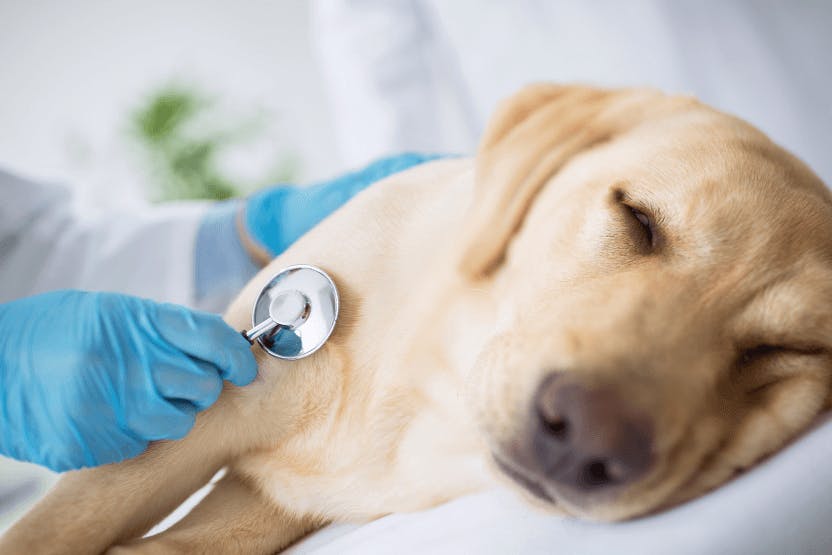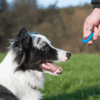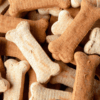My Dog Ate a Mouse: What You Need to Know
Dogs are natural predators and scavengers, and they may sometimes catch and eat mice. While this may seem like a normal behavior for them, it can also pose some serious risks for their health and well-being. Mice can carry various poisons, diseases, and parasites that can harm your dog. In this article, we will explain what to do if your dog ate a mouse and how to prevent it from happening again.
Symptoms of Mouse Poisoning
One of the biggest dangers of your dog eating a mouse is the possibility of secondary poisoning. This means that your dog may ingest the poison that the mouse had consumed or was exposed to. There are different types of rodenticides that are commonly used to kill mice, and they can have different effects on your dog. Some of the most common ones are:
- Anticoagulants: These are blood thinners that prevent the blood from clotting and cause internal bleeding. Symptoms may include pale gums, weakness, lethargy, bruising, bleeding from the nose, mouth, or rectum, and difficulty breathing. This type of poisoning may take several days to show up, and it can be fatal if not treated promptly.
- Bromethalin: This is a neurotoxin that affects the brain and nervous system. Symptoms may include tremors, seizures, paralysis, coma, and death. This type of poisoning can occur within hours or days of ingestion, and there is no antidote available.
- Cholecalciferol: This is a form of vitamin D that causes high levels of calcium and phosphorus in the blood and leads to kidney failure. Symptoms may include increased thirst and urination, vomiting, diarrhea, loss of appetite, weight loss, and depression. This type of poisoning can take several days or weeks to show up, and it can be very difficult to treat.
If you suspect that your dog ate a poisoned mouse, you should contact your veterinarian or a pet poison helpline immediately. Do not induce vomiting unless instructed by a professional, as this may worsen the situation. Your veterinarian may perform blood tests, x-rays, or other diagnostics to determine the type and severity of the poisoning. They may also administer activated charcoal, fluids, vitamin K, or other medications to counteract the effects of the poison and support your dog’s recovery.
Diseases and Parasites from Mice
Another danger of your dog eating a mouse is the risk of contracting diseases and parasites from the mouse. Mice can carry various bacteria, viruses, fungi, protozoa, and worms that can infect your dog and cause illness. Some of the most common ones are:
- Roundworms: These are intestinal parasites that can cause diarrhea, vomiting, weight loss, potbelly, and poor growth. They can also infect humans and cause eye or organ damage. Roundworms can be detected by a fecal exam and treated with deworming medications.
- Toxoplasmosis: This is a protozoan infection that can cause fever, lethargy, loss of appetite, muscle pain, and neurological problems. It can also affect pregnant dogs and cause abortion or birth defects. Toxoplasmosis can be diagnosed by a blood test and treated with antibiotics.
- Leptospirosis: This is a bacterial infection that can cause kidney and liver damage, jaundice, vomiting, diarrhea, bleeding, and death. It can also infect humans and cause similar symptoms. Leptospirosis can be diagnosed by a urine or blood test and treated with antibiotics and fluids.
- Salmonellosis: This is a bacterial infection that can cause gastroenteritis, fever, dehydration, and septicemia. It can also infect humans and cause food poisoning. Salmonellosis can be diagnosed by a fecal culture and treated with antibiotics and fluids.
To prevent and reduce the risk of diseases and parasites from mice, you should keep your dog up to date on vaccinations and deworming. You should also wash your hands and disinfect any surfaces that may have come into contact with mice or their droppings. If your dog shows any signs of illness after eating a mouse, you should consult your veterinarian as soon as possible.
How to Stop Your Dog from Eating Mice
The best way to protect your dog from the dangers of eating mice is to prevent it from happening in the first place. Here are some tips on how to stop your dog from eating mice and how to keep your home and yard mouse-free:
- Keep your dog on a leash or in a fenced area when outdoors. This will prevent your dog from roaming and hunting mice. You can also use a muzzle or a basket to prevent your dog from picking up anything from the ground.
- Provide your dog with enough exercise, mental stimulation, and attention. This will reduce your dog’s boredom and curiosity and make it less likely to chase and eat mice. You can also provide your dog with toys, puzzles, and treats to keep it busy and satisfied.
- Remove any food sources and hiding places for mice. This will discourage mice from entering and staying in your home and yard. You can do this by sealing any holes or gaps in your walls, floors, or doors, storing your food in airtight containers, cleaning up any crumbs or spills, and trimming any overgrown vegetation or debris.
- Use humane traps or repellents to get rid of mice. This will help you control the mouse population and prevent your dog from eating them. You can use live traps, glue traps, or ultrasonic devices to catch or repel mice. Avoid using poison baits, as they can harm your dog and other animals.
Conclusion
Dogs may eat mice for various reasons, such as instinct, hunger, boredom, or curiosity. However, eating mice can be dangerous for dogs, as they can ingest poison, diseases, or parasites from the mouse. If your dog ate a mouse, you should monitor it for any symptoms and contact your veterinarian or a pet poison helpline if you have any concerns. You should also take steps to prevent your dog from eating mice and to keep your home and yard mouse-free. By doing so, you can keep your dog healthy and safe.
FAQS
Q: What happens if a dog eats a mouse?
Q: Can a dog get sick from picking up a mouse?
Q: What to do if your dog has a mouse in his mouth?
Q: Can a dog catch a mouse?
Q: What should I do if my dog ate a mouse?
If your dog ate a mouse, you should monitor it for any symptoms of poisoning, disease, or parasite infection. You should also contact your veterinarian or a pet poison helpline as soon as possible, especially if you suspect that the mouse was poisoned or infected. Your veterinarian may perform some tests and treatments to help your dog recover.
Q: How can I tell if my dog ate a poisoned mouse?
Some signs that your dog may have ingested a poisoned mouse are pale gums, weakness, lethargy, bruising, bleeding, tremors, seizures, paralysis, coma, increased thirst and urination, vomiting, diarrhea, loss of appetite, weight loss, depression, and jaundice. These symptoms may vary depending on the type and amount of poison that the mouse had consumed or was exposed to. If you notice any of these signs, you should seek veterinary attention immediately.
Q: How can I tell if my dog has a disease or parasite from a mouse?
Some signs that your dog may have contracted a disease or parasite from a mouse are fever, cough, sneezing, nasal discharge, eye discharge, skin lesions, hair loss, itching, swelling, muscle pain, neurological problems, gastroenteritis, dehydration, and septicemia. These signs may vary depending on the type and severity of the infection or infestation. If you notice any of these signs, you should consult your veterinarian as soon as possible.
Q: How can I prevent my dog from eating mice?
The best way to prevent your dog from eating mice is to keep it on a leash or in a fenced area when outdoors, provide it with enough exercise and mental stimulation, remove any food sources and hiding places for mice, and use humane traps or repellents to get rid of mice. You should also teach your dog the “leave it” or “drop it” command and reward it for obeying you.
Q: How can I keep my home and yard mouse-free?
To keep your home and yard mouse-free, you should seal any holes or gaps in your walls, floors, or doors, store your food in airtight containers, clean up any crumbs or spills, and trim any overgrown vegetation or debris. You should also avoid using poison baits, as they can harm your dog and other animals. You can use live traps, glue traps, or ultrasonic devices to catch or repel mice.
Related Posts
Are Dogs Allowed In CVS?
March 22, 2024• Dog
Are Dogs Allowed in Duane Reade?
March 22, 2024• Dog
Natural Dewormers for Dogs: Safe and Effective
March 15, 2024• Dog, Dog Health
How Do I Comfort My Dog After Neutering?
March 6, 2024• Dog, Dog Health
Dog Rubs Face on Carpet: A Guide to Why
March 5, 2024• Dog














